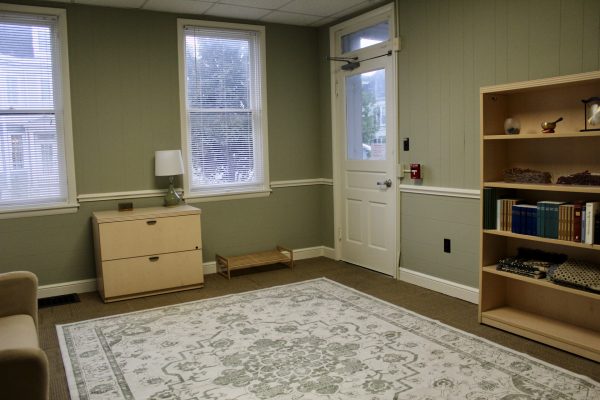An Interview with Nelly Teta ’22
2019 marks the 25th anniversary of the genocide against the Tutsi peoples of Rwanda. On Monday, Dec. 2, The Clarke Forum for Contemporary Issues sponsored the lecture “Rwanda 25” and featured panelists to discuss the rebuild and growth of modern Rwanda. One panelist, Nelly Teta ’22, is from Rwanda and offers her perspective on the state of the country today. The Dickinsonian sat down with Teta to hear more of her thoughts.
TD: Why did you decide to participate in the “Rwanda 25” lecture?
NT: To give a perspective of the generation born after the genocide and how they are involved in the development of the country today and why it is important for us to be involved in the country. How different it is for youth to group in this generation after the genocide compared to how people grew up before the genocide when all the tension was there. My family is from Rwanda and was born there, I was born and raised there.
TD: What’s your family’s perspective on how the country has shifted in 25 years?
NT: It’s amazing. They constantly tell me how lucky I am to have grown up having a country because when they grew up, it was a really hard time for them to be able to call Rwanda a country. So now they are proud of how much the country has evolved and how much rebuilding and reconsideration has gone into actually making people proud of calling Rwanda their home. They are very proud when people mention Rwanda outside of the country because we lived here [the United States] for a long time and learning about Rwanda here is very different.
TD: How much of the genocide did you know about growing up?
NT: A lot of the genocide I had to learn early because I know a lot of my family members were killed in the genocide, so I just had to grow up knowing it. In Rwanda it’s a constant reminder of reconciliation and rebuilding so ‘okay we are coming from the genocide we have to rebuild our country so it’s important not to forget the past’ and it is really important. In April, we have this time of remembering, so it’s very important to remember and mourn the deaths of these people. I remember when I was little, in April it’s a very hard month and a sad time, and we had to sit there and mourn.
TD: How much education of the genocide was presented to you in the U.S?
NT: I was here for a while so I had to learn about it from classes, and it was really hard. I don’t think I learned about it until my high school—once in one of my classes—and it was very glossed over view, you could tell the professor did not know what he was talking about. It was really hard to hear, because people don’t really know what happened and it’s hard. You can kind of tell they’re trying to force it into history without knowing why it’s important, but when I really learned about it well was in my boarding school in Maryland. We had to watch this documentary Ghosts of Rwanda, and it was a good way to teach the class about the genocide.
TD: What’s a suggestion you would make to different schools about how to teach about the genocide against the Tutsi peoples?
NT: It’s one thing to teach about an event that happened, but it’s important to know the causes of it, because people think that it just happened, and the killings took like 100 days and it was over. But, everything before that was going on for three decades, there were so many refugees and people who did not live in the country because of that. It is very important to learn this history. It’s not just a small event that happened, it’s huge. If you’re not educated on it, it’s not okay to teach. You shouldn’t have to gloss over that history because imagine a Rwandan kid in class and watching that history be glossed over. That’s horrible. So, it’s just important to learn fully about it first than to quickly put it into syllabus. There’s a lot of factors to it. They have to make sure they avoid the outside influences that try to tell the wrong story. So, it’s important to know the story from a Rwandan perspective.
TD: What do you hope that the audience gains from the Rwanda 25 lecture?
NT: I really hope people see in perspective what Rwanda is really like today because Rwanda 1994 versus today is so different. People talk about how they blinked, and Rwanda was just there. It’s true because the amount of rebuilding that went into the country is crazy. I remember when I was little in 2005 looking at “Vision 2020” –how far we were going to be and how we would have skyscrapers and stuff like that. It always seemed so far away, but 2020 is next year. The amount of infrastructure that’s been built and the amount of progress the country has made is crazy. I’ve also lived in the U.S. for a long time, so when I went back every summer, I would be so surprised of all the new things there. I would go home and not even recognize the place. When people see the enormous growth Rwanda has created and what that’s really important for a country of that size and with that history. A country that’s constantly ignored, especially during that time. Just knowing we did it is very important especially for other countries in Africa were really in a beacon. I really appreciate that, and I really love it.



